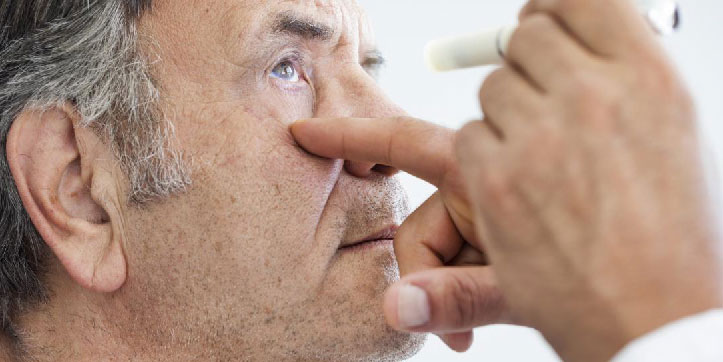Posted by: Eye Centers of Florida in Eye Health
Vision Problems? You Might Have a Cataract

If you’re experiencing problems with your vision that make completing everyday tasks difficult, then you may be suffering from a cataract. At Eye Centers of Florida, we believe that the quality of your vision can greatly impact the quality of your life — you deserve to live life with clear, cataract-free vision!
To recognize Cataract Awareness Month, we’ve put together this guide so that you can recognize the symptoms of a cataract and will know when it’s time to reach out for help.

Six Signs that You May Have a Cataract
If you suffer from any of the following six symptoms, it may be a sign that you need to schedule a cataract surgery evaluation with the experts at Eye Centers of Florida:
Everything Looks Blurry
When light enters your eye, it is focused by the eye’s natural lens onto the retina, which is essential for vision. When the lens becomes cloudy due to a cataract, less light can pass through it. This means that less light can be focused on the retina, causing blurry vision. If cataracts go untreated, they can become even cloudier, resulting in foggy and filmy eyesight.
Trouble Behind the Wheel

Colors Seem Faded or Yellowed

Rapid Changes in Your Prescription
Temporarily Improved Vision
Seeing Double

It’s Time to Remove Your Cataract & Restore Your Vision
Everyone deserves to experience life with clear vision, and if your cataracts are interfering with your quality of life, it’s time to reach out for help.
Cataract surgery is one of the most commonly performed surgical procedures. It’s safe, quick, and simple, especially in the hands of our cataract surgery specialists, David C. Brown, M.D., F.A.C.S., and Juan P. Fernandez de Castro, M.D., who always use the latest technology.
If you or a loved one is experiencing the symptoms of a cataract, call us at 888-393-2455 or schedule an evaluation so that you can see life as it was meant to be seen: clearly.